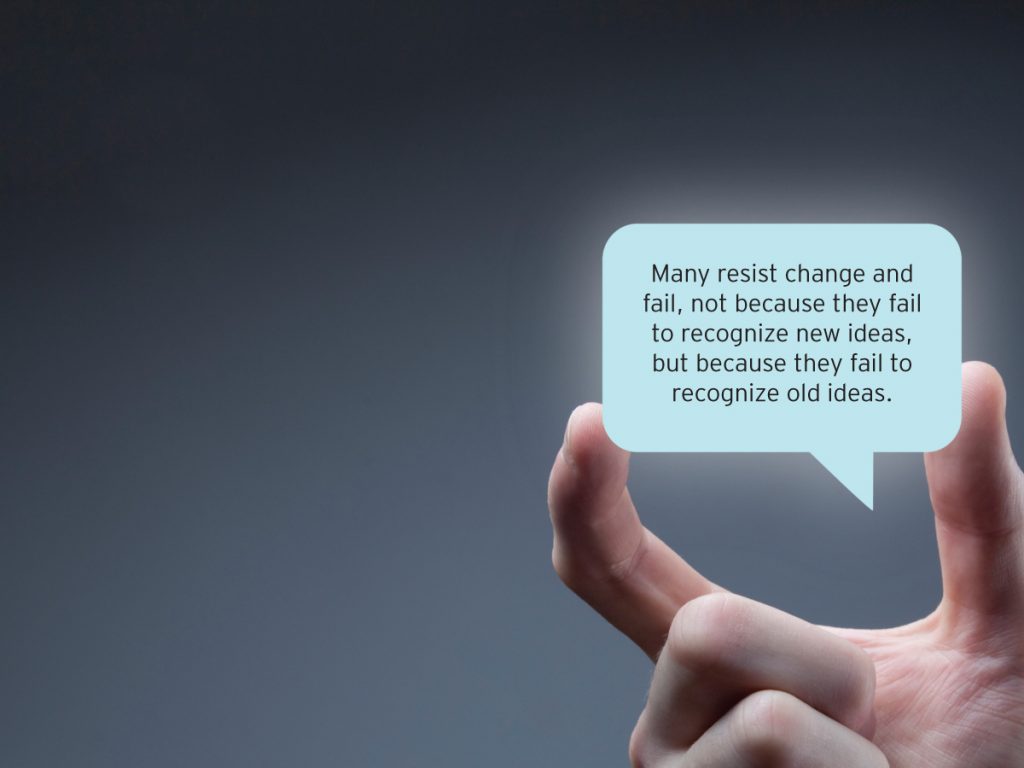THOSE WHO ACHIEVE SUCCESS HAVE ONE THING IN COMMON – THEY HAVE THE ATTITUDE THAT IT IS BETTER TO FAIL THAN TO GIVE UP AND QUIT.
There is an interesting dynamic that occurs when someone proposes a new idea, a concept for a better way of doing things or a plan for a new business venture. The nearly universal reaction to any of these proposals is negative. Everyone seems to be at the ready to offer all the reasons why the new idea, process or business venture is wrong or will fail. This type of negative reaction to something new or different can dampen the spirits of even the most optimistic person. But it is how the individual reacts to this negative environment that either kills the proposal or brings it to life.
There are a number of reasons why many people tend to be negative toward new ideas or concepts. First off, since they didn’t think of the new idea, they may not understand it. Often, they fail to recognize the need for something new. And if things seem to be working well, why would you want to change them? Lastly, many believe that since the vast majority of new businesses will fail anyway, why take the risk to do something that is likely to fail?
Those who are successful and make history in this type of negative environment are those who don’t give up—they persevere. And it’s not just that they keep trying to be successful, it’s that they can’t stop trying to succeed. They become oblivious to the negativity and press on until there is nothing more that can be done and they either succeed or fail. Their mentality is that it is better to fail than it is to give up and quit. They passionately believe that success is out there to be captured and if they have not found it yet, it is because they have not been looking in the right place, so they just keep looking.
The list of well-known individuals whose early careers were filled with rejection and failure, but simply persevered until they became successful is long and enlightening. Einstein, Henry Ford, Harland “Colonel” Sanders, Walt Disney, Winston Churchill, Abraham Lincoln and scores of others are all people we equate with exceptional success and even though their triumphs were in different fields, they all had one thing in common – they persevered against rejection and failure.
The quintessential example of perseverance was arguably Thomas Edison. Early life failures for Edison were legendary. Expelled from virtually every school he attended for being “unteachable,” Edison went on to be fired from almost every job he ever held. But Edison had one passion – inventing. No matter how many rejections received or failures experienced, he was never discouraged or dissuaded from seeking the next invention. In the end, Edison was granted more patents – 1093 – than any other individual. Not all these were memorable, but when you take into account that some of them included the light bulb, the alkaline battery, the electrical grid and the phonograph, it shows what perseverance can lead to.
The ability to persevere not only depends on the ability to put up with a negative environment for an extended period of time, but also the ability to educate and convert others to the new ideas.
When I joined with a small group to start a new life insurance company – LifeUSA – there was an abundance of naysayers. Not only was there near-unanimous negativity to the very idea of starting a new life insurance company, there was even more vociferous rejection of the LifeUSA concept of employee and agent ownership, the focus on annuity products to reward people for living, rather than dying, and the idea of competing against rather than with other insurance companies.
The founders of LifeUSA lived in a negative world from the get-go. Yet we believed in our ideas and persevered. To be successful required us to win over others with the idea that there was opportunity for a new life insurance company. We had to convince others that taking ownership in a new company was better than taking a job with an old company. Agents used to selling the old products had to be persuaded that the new products were better than the old and then taught how to sell them. These were not easy tasks and efforts to do so were constantly greeted with a pessimistic reaction. But we persevered. We did so by adopting a very simple attitude toward rejection. When our ideas were presented and then rejected, we simply said, “Next.” We firmly believed that if we kept moving forward presenting our ideas to the next person, we would ultimately prevail. We were so convinced that our ideas were right and the old ideas were wrong, we could not be deterred by negativity. And in the end, our perseverance was rewarded.
Perseverance Does More Than Help You Succeed
When you are willing to preserve in the headwind of negativity it focuses your mind on the goal even more and provides a type of perverse drive that increases your motivation to prove that others are wrong. When those you have enlisted in your effort to be successful see that no matter how difficult and negative the times may be that you won’t quit and persevere till the end, it builds trust and respect that motivates them to persevere as well. When you have the will to persevere – even to the very end – it reinforces your focus on the goal and helps you understand that success will be determined by what you do, not what others say.
The lesson is simple: Success does not come easily, but it will not come at all unless you are willing to preserve in your desire and effort to find it.

